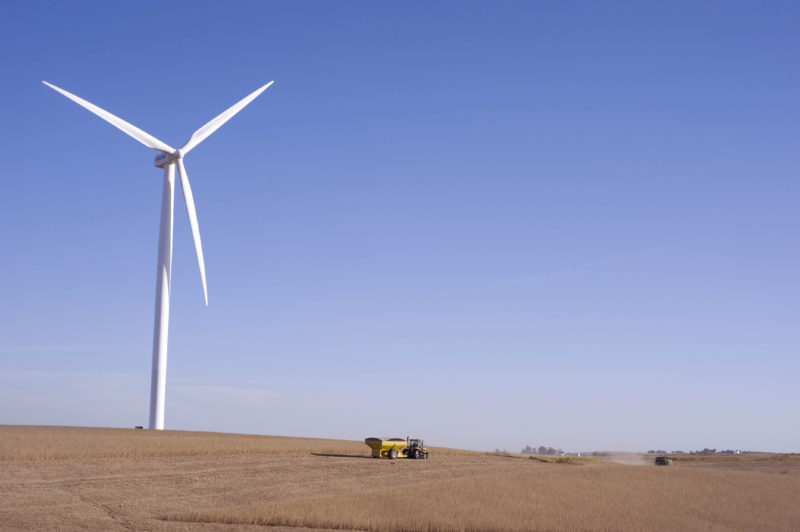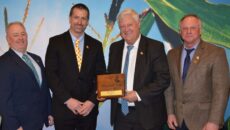JEFFERSON CITY, Mo. — Despite an appeals court siding with the Public Service Commission (PSC) in its approval of the Grain Belt Express Project, the Capitol is still gearing up for a clean energy versus eminent domain fight this session.
Multiple bills have already been filed by legislators who are seeking to tamper the impact the proposed wind energy transmission line could have on Missouri. And the Missouri Court of Appeals Eastern District issued a December ruling saying the PSC was allowed to approve a certificate for convenience and necessity for the project in 2019.
Read on for a look at what to know about the project and the arguments for and against it.
What is the project?
The Grain Belt project would develop an overhead and direct transmission line of approximately 780 miles delivering wind energy from western Kansas to utilities and consumers in Missouri and other states, according to its website. It would extend through eight Missouri counties: Buchanan, Clinton, Caldwell, Carroll, Chariton, Monroe, Randolph, and Ralls.
The project contends it would deliver about 4,000 megawatts of renewable power and clean energy to about 1.6 million homes per year and create new jobs — including both permanent and temporary construction work.

In March 2019, the PSC approved a certificate of convenience and necessity for the project, giving it the green light to construct and manage a new transmission line in the state.
What do proponents say?
“The Grain Belt Express project represents a nearly $500 million direct investment in Missouri,” Beth Conley, a spokesperson for Invenergy, has told The Missouri Times. “It will pay Missouri landowners $32 million and pay $7 million in property taxes in the first year of operation alone. The project will also create 1,500 construction jobs.”
Members of the Missouri Public Utility Alliance (MPUA) have expressed unwavering support for a new transmission line, arguing it would result in millions of dollars in savings to consumers across the state.
“I think this project is very worth the effort, and I think it would be well-needed in the state of Missouri,” said Dennis Klusmeyer, superintendent of the city of Shelbina. “We are in need of infrastructure improvement across the state and across the country. On our electrical infrastructure, this would help support that.”
What about those opposed?
One main opposition to the Grain Belt hinges on eminent domain — an issue brought before the General Assembly in 2019 and is expected to be tackled again this year.
Missouri Farm Bureau President Blake Hurst has lambasted the PSC’s eventual approval of the project, saying it “sets precedent for private companies to buy land on the cheap and profit at the expense of Missouri citizens.”
“Allowing the project to proceed places hundreds of Missouri landowners at risk of having their land taken for a project that may never be completed,” he said.
What is the legislature doing?
Sponsored by Republican state Rep. Jim Hansen, HB 2033 would prohibit private entities from using eminent domain for the purposes of constructing above-ground merchant lines. Hansen represents some areas that would be impacted by the construction of the Grain Belt.
The bill is similar to legislation he filed last year that didn’t make it through the General Assembly.
This story has been updated.

Kaitlyn Schallhorn was the editor in chief of The Missouri Times from 2020-2022. She joined the newspaper in early 2019 after working as a reporter for Fox News in New York City.
Throughout her career, Kaitlyn has covered political campaigns across the U.S., including the 2016 presidential election, and humanitarian aid efforts in Africa and the Middle East.
She is a native of Missouri who studied journalism at Winthrop University in South Carolina. She is also an alumna of the National Journalism Center in Washington, D.C.
Contact Kaitlyn at kaitlyn@themissouritimes.com.




















